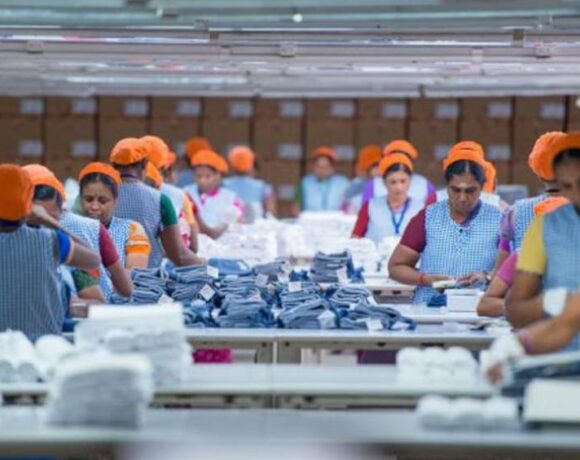Global Economy Set For Modest Growth Amid Heightened Uncertainty In 2025

The second edition of Association of Chartered Certified Accountants’ (ACCA) annual economic outlook examines the prospects for the global economy and key regions in 2025, exploring risks, trends and business implications. The 2025 Global Economic Outlook: A Highly Uncertain World report identifies critical developments, such as geopolitical challenges, trade policy shifts and technological advancements, alongside CFO perspectives and expert analysis. ACCA is a globally recognised professional accountancy body providing qualifications and advancing standards in accountancy worldwide.
The report also features an exclusive interview with economist Charles Goodhart, who reflects on the complex challenges facing the global economy. He highlights uncertainties surrounding the trade and fiscal policies of the US, noting that while the US economy may perform strongly in 2025, Europe and the UK are likely to struggle. Goodhart is cautiously optimistic about India’s prospects but warns of potential inflationary pressures returning by 2026-2027. On Artificial Intelligence (AI), he asserts that while it may not be a silver bullet for poor productivity growth, it could help reduce inequality in some economies.
Jonathan Ashworth, Chief Economist at ACCA and author of the report, says: “The global economy is forecast to grow modestly at 3.2% in 2025, but it faces significant uncertainty. Risks to the downside persist, driven by geopolitical tensions, the policy shifts of the new US administration and rising government bond yields. With heightened trade policy uncertainty and political challenges in key regions, businesses need to prepare for a potentially volatile year ahead.”
Ashworth further explains: “On the upside, ongoing technological advances, particularly in AI, could start delivering long-anticipated productivity gains, while robust policy easing in China and infrastructure investments in emerging markets may provide stabilising forces. However, risks from tighter immigration policies, potential tariff escalations and climate policy rollbacks pose challenges for sustainable growth.”
Md Sajid Khan, Director – India, ACCA, emphasises the importance of preparedness: “India remains a bright spot in the global economic outlook, with growth expected to outpace major economies in 2025. However, navigating global uncertainties—ranging from geopolitical shifts to regulatory changes—requires a proactive approach from finance and business leaders. As organisations embrace AI, sustainability and evolving compliance frameworks, finance professionals will play a crucial role in ensuring resilience and driving strategic growth. At ACCA, we are committed to equipping professionals with the skills and insights needed to excel in this evolving landscape.”
The report highlights three key trends that will shape the global economy in 2025:
- Developments with AI: The emergence of AI agents promises new productivity breakthroughs, but hybrid solutions integrating other technologies will be crucial for sustained value.
- Rising geoeconomic fragmentation: Globalisation continues to slow, with increasing trade and investment restrictions contributing to a fractured global economy.
- Further retreat from green policies: Amid cost-of-living pressures and political shifts, climate-related commitments are under strain, with potential long-term consequences for sustainability.
The report features insights from seven CFOs across diverse industries and regions. While most are cautiously optimistic, many expressed concerns over talent scarcity, inflation and geopolitical risks. AI continues to be a priority, with businesses recognising both its potential and its disruptive challenges. A recurring theme among CFOs is the need for agility, innovation and resilience in navigating an uncertain economic landscape.
Sachin Bansal, CFO of Wipro Consumer Care and Lighting, sharing his perspective on the outlook, says: “In India, the latest quarterly growth numbers were much weaker than expected. Rural consumer spending is improving, but urban consumption has moderated amid slow wage growth and high food prices and housing costs. This has weighed on corporate profitability. The general consensus is that things will start improving in the next couple of quarters, and in calendar year 2025, inflation should move into an acceptable zone and growth should be back on track. I remain upbeat on India’s longer-term growth prospects.”
“In a year marked by uncertainty, understanding the interplay of economic, political and technological factors is critical for businesses and policymakers,” Ashworth concludes.















